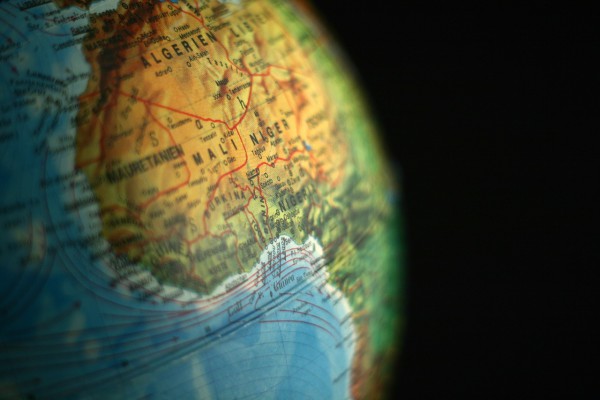“IT’S A TOUGH FIELD.” – THE EXPERIENCES OF A HUNGARIAN BUSINESSMAN IN AFRICA
Featured News // 2016.03.04
Globoport.hu talked with Kálmán Képes, the director of the Hungarian Trade & Cultural Centre (HTCC) in Ghana, about opportunities for Hungarian enterprises in Ghana and the difficulties one has to face if wanting to do business in Ghana.

Globoport: How did you end up in Africa and what motivated you to live and work in Ghana?
Kálmán Képes: I ended up in Africa by an accident and I’ve been living and working here for almost 12 years. Earlier I worked in Vietnam and other countries. Now I am the director of the HTCC in Accra, the capital and largest city of Ghana. I came here 5 years ago, before that I worked in Kenya for 6 years. I left Kenya at the time of the terror attacks.
I came to Ghana at the suggestion of a friend. First I only came for ten days but I really liked the country and I saw great opportunities here so I decided to move to West Africa from East Africa. After a year of gathering information, I made an arrangement with Sándor Balogh, the president of the HTCC network, that we would open a trade office and go in quest of Ghanaians that once studied in Hungary. Before the change of regime, many people came to study in Hungary from Ghana, and then returned to their homeland after graduating and some of these people had a very successful career.
Globoport: Professionals and businessmen dealing with Africa have been saying that Hungary should renew those relations that flourished in the 70s and 80s but later discontinued. Some people have been also referring to those African students that spent a few years at Hungarian universities and even speak our language. This seems like a serious possibility to enter the African market. What are your experiences about Hungarians in Ghana?
Kálmán Képes: Basically, I was the first in Ghana to find and get in touch with these people. I tried to gather them and wanted to get to know them. I organised dinners for them at the HTCC in Accra. In the beginning it all went well. Many of them hardly believed that there was Hungarian representation in Ghana again, but they were very happy about it, because they felt very offended when Hungarians just simply left Ghana in the 1990s. Unfortunately, other people took our positions in our absence which makes our situation harder.
This wasn’t necessarily successful because we had to experience that for them cooperation with Hungary would have meant something different than what we wanted. In the future we might prefer relations based on professionality, not on emotions. What I mean by this is that in the future, we would like to work with Ghanaians that are reliable and honest but are not connected to Hungary. However, we should keep in mind that personal relations are still very important in Africa, so we are trying to look for the right people.
Globoport: What is the situation like in Ghana, what kind of business opportunities could be attractive for Hungarian investors?
Kálmán Képes: Ghana, just like Africa generally, is a tough field. Elections are coming up which makes the political and economic atmosphere complicated, you can feel the uncertainty. The standard of living has been worsening since the time of my arrival. Wages are low, unemployment is high. At least 240 thousand graduated young people don’t have a job. The local currency is also declining. Not to mention exterior factors that hit the country and made its development more difficult.
The lack of energy is a serious problem throughout the country. There are days when even the capital lacks electricity. People can’t turn their computers on, can’t send emails or charge their phones. And all of this makes doing business harder. The factories near the capital are supplied with electricity by one power plant. River Volta hasn’t had enough water for 8 months so the biggest power plant of the country can only function on minimum level. This power plant should provide the 60-70% of the country’s energy supply but it can’t function at its maximum capacity due to the lack of water. Another serious problem is the decrease of the oil prices, as many people don’t know that Ghana is a fossil oil exporter. The production of cacao has also decreased by 30% due to several problems. The decline of the price of gold is also worsening the situation of Ghana’s economy.
Globoport: What kind of opportunities can Ghana offer to Hungarian enterprises, investors?
Kálmán Képes: First of all, you really need to think doing business in Ghana through. There are many humbugs and defrauders. I know of Hungarians that went bankrupt because they were ripped off. Besides the capital, there are two cities in Ghana with an infrastructure that makes doing business possible.
The biggest problem with Hungarian products is that they don’t know about them and we don’t produce enough of them. For instance, it would be easy to endear and spread the wines of Tokaj. Wine consuming is quite new in Ghana and the neighbouring countries. Nobody drank wines a few years ago but now they are very interested in it. They drink more and more wine in bars, restaurants and even at home. Sweet wines are their favourite and that is why they would fancy the wines of Tokaj. But the problem is that we cannot serve the Ghanaian market. A Lebanese tradesman wanted to order 150 thousand bottles but nobody could’ve delivered an amount like that. We simply cannot compete with wines from Chile, South Africa and Germany. They flood the market. There is also Moldova who successfully broke into the West African market with its sweet white and red wines. Their business is now flourishing.
Copy editor: bm
Source: http://dailynewshungary.com/its-a-tough-field-the-experiences-of-a-hungarian-businessman-in-africa/
Share: